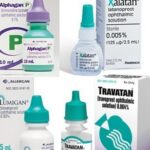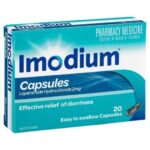Can You Take Expired Diet Pills?

Diet pills also known as appetite suppressants are a type of weight-loss supplements (diet pill). They affect the brain’s urge to eat. Diet pills can control hunger pangs or make you feel full faster on less food. As a result, you take in fewer calories and lose weight.
Diet pills help you lose weight by curbing hunger or making you feel full. They can be helpful for people who carry a lot of excess weight. You can also buy over-the-counter diet pills. You’ll lose more weight when you combine weight loss pills with healthy lifestyle changes like diet and exercise.
How effective are diet pills?
On average, people who combine prescription appetite suppressants with healthy lifestyle changes (a nutritious diet and exercise) lose 3% to 9% of their starting weight within 12 months.
What are the types of diet pills?
There are prescription and over-the-counter (OTC) appetite suppressants. One weight-loss drug, orlistat (Alli®), works by blocking fat absorption (it’s not an appetite suppressant). Check with your healthcare provider before using OTC diet pills. Some OTC appetite suppressants may interact with medications or cause health problems.
The Food and Drug Administration (FDA) has approved these prescription appetite suppressants:
- Diethylpropion (Tenuate dospan®).
- Liraglutide (Saxenda®).
- Naltrexone-bupropion (Contrave®).
- Phendimetrazine (Prelu-2®).
- Phentermine (Pro-Fast®).
- Phentermine/topiramate (Qsymia®).
What are the benefits of using appetite suppressants?
For some people, appetite suppressants jumpstart weight loss. Diet pills can help you change the way you eat and learn to recognize cues that signal when you’re full.
How long should you take appetite suppressants?
The FDA has approved some prescription appetite suppressants for short-term use of 12 weeks or less. If you lose weight and don’t have side effects, you may be able to take certain prescription medications indefinitely with your healthcare provider’s approval.
Can you take expired diet pill?
An expired diet pill is less effective or risky due to a change in chemical composition or a decrease in strength. The expiration date is the final day that the manufacturer guarantees the full potency and safety of a medication. Drug expiration dates exist on most medication labels, including prescription, over-the-counter (OTC) and dietary (herbal) supplements. U.S. pharmaceutical manufacturers are required by law to place expiration dates on prescription products prior to marketing.
Certain expired medications are at risk of bacterial growth and a sub-potent diet pill can complicate weight-loss efforts, leading to more serious weight related illnesses. Once the expiration date has passed there is no guarantee that the medicine will be safe and effective. If your diet pill has expired, do not use it. Even though some controversial studies indicate that some drugs can be used after expiry dates it is better to err on the side of caution in order not to complicate your health condition.
According to the DEA many people don’t know how to properly clean out their medicine cabinets. Failing to safely dispose of old medications, especially opioids, all too often leads to dangerous drugs ending up in the wrong hands. The CDC reports that 50,000 young children end up in emergency rooms each year because they got into medicines while an adult wasn’t looking.
Finally, expired medicines are also not just a risk to the person they were prescribed for and can injure children and pets if taken by mistake. For all these reasons, proper disposal of unneeded medicines is essential.
What to do with expired diet pill?
First, read the diet pill label and follow any specific disposal instructions that may be included. A drug take-back program, if available, is the preferred way to dispose of expired, unwanted, or unused medicine. For example, the National Prescription Drug Take-Back Day, coordinated by the DEA, addresses a vital public safety and public health issue by focusing attention on this important issue and reminding everyone to get rid of unneeded and outdated medicines. Through this important program many tons of unneeded and out-date drugs have been removed for proper disposal.
When drug take-back programs aren’t available, federal guidelines recommend throwing the medicines away in the household trash after mixing them with a substance like dirt or kitty litter and then sealing the mixture in a container (see graphic at right). However, certain medicines are specifically recommended for flushing down a toilet or sink because they could be especially harmful, even fatal, to a child, pet, or anyone else if taken accidentally. For a list of medicines recommended for disposal by flushing, as well as other information on proper disposal, please see the Disposal of Unused Medicines page.
A place for everything
Proper storage is one way to help make sure your medicines will remain safe and effective up to their expiration date. Be sure to read the label to see if there are specific storage instructions for your medicine. Certain medicines need to be stored in the refrigerator and others cannot be exposed to high temperatures. Improper storage – such as a damp bathroom cabinet – can contribute to decreased effectiveness in medicines that have not reached their posted expiration date. For most medicines, to help ensure the proper shelf life of your medicine, it is better to store medicine in a cool, dry place such as a dresser drawer, storage box, closet shelf, or kitchen cabinet.
When storing medicine in a kitchen cabinet make sure that it is away from hot appliances and the sink due to changing temperatures and humidity, which can affect the medicine. When storing medicine in a high traffic area, like a kitchen, care should be taken to prevent access by children at risk of accidental poisoning or others who may be tempted to take for abuse/misuse.
Remember to store medicines properly and don’t use expired medicines — it’s not worth the risk!
What are the risks of using diet pills?
Rarely, appetite suppressants cause liver damage. Call your healthcare provider if you notice signs of liver disease, such as jaundice (yellow skin or eyes). More common side effects include:
- Constipation.
- Cough.
- Dizziness.
- Dry mouth or change in sense of taste.
- Fatigue.
- Headaches.
- Increased blood pressure or heart rate.
- Nausea and vomiting.
- Sleep problems or insomnia.
Who should not take appetite suppressants?
Appetite suppressants can interact with medications, including antidepressants and anti-anxiety drugs. They also worsen certain health conditions. The medications aren’t safe for pregnant or breastfeeding women. You shouldn’t take appetite suppressants if you have:
- Glaucoma.
- Heart disease.
- Hyperthyroidism (overactive thyroid).
- Liver disease.





